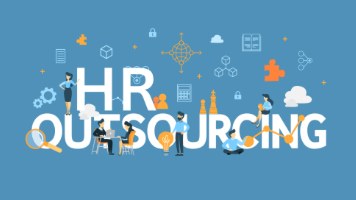The term “HR compliance” describes how closely human resources procedures and policies follow local, state, and federal legal requirements. It guarantees that the HR procedures used by a company comply with the laws pertaining to employment, workplace safety, and employee rights.
Workplace safety rules, wage and hour legislation, anti-discrimination policies, labor laws, and data privacy regulations are examples of compliance areas. HR compliance promotes just and moral behavior with the dual goals of safeguarding the company and its workers.
This entails keeping abreast of legislative developments, putting procedures into place that comply with the law, and carrying out routine audits to find and fix any possible compliance problems. There may be legal repercussions and reputational harm for non-compliance.
What are the Benefits for the Employees?
HR compliance synchronizes business procedures with legislative mandates to guarantee that workers receive all benefits to which they are entitled. It ensures equal opportunity, prevents discrimination, and ensures fair treatment. Ensuring adherence to labor rules and regulations guarantees precise salary disbursements, overtime pay, and prompt provision of benefits like health insurance and retirement plans.
HR preserves employees’ rights and benefits while fostering an open and safe environment by adhering to compliance rules. In addition to contributing to a positive workplace culture where people feel appreciated and encouraged in obtaining the benefits to which they are entitled, this encourages employee satisfaction, trust, and retention.
What if any businesses does not follow?
An organization that violates the law may be subject to fines, penalties, and harm to its reputation. Lawsuits, penalties, and even closures may result from noncompliance. Furthermore, it undermines staff morale and trust, which has a detrimental effect on the organization’s overall performance and sustainability.
Can Outsourcing of HR help out in this case?
Get Hire Technologies, Inc. takes proactive steps to guarantee that rules and regulations are followed in order to address compliance difficulties. This entails keeping up with legal developments, periodically evaluating and revising policies, and training staff members in compliance. as problems occur, HR looks into them right away, works with legal professionals as needed, and implements solutions.
In order to resolve issues in a transparent manner, communication with staff is essential. HR is essential to the organization’s efforts to reduce risks, settle disputes, put preventative measures into place, and promote a compliance culture. Frequent evaluations, assessments, and ongoing observation assist HR in locating and resolving compliance issues before they become more serious.
Conclusion
The cornerstone of an effective organization is a robust employee-company relationship built on compliance. Respect for the law promotes justice, openness, and trust. Employee loyalty and job satisfaction are increased when they feel safe in the knowledge that their rights are upheld. Compliance protects businesses from legal concerns, enhances their reputation, and fosters a healthy work environment. This mutually beneficial relationship guarantees a peaceful and lawful atmosphere for the advantage of both sides.









